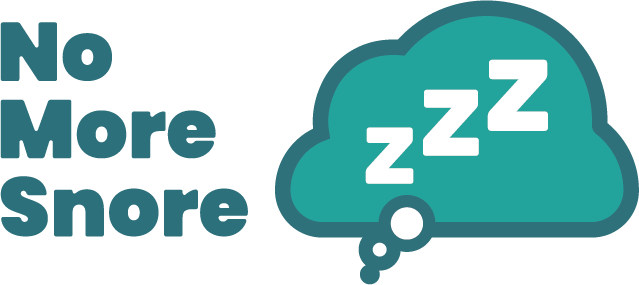Sleep apnea is a common sleep disorder that affects millions of people worldwide. While it is primarily a medical condition, dentists play a crucial role in the diagnosis and treatment of sleep apnea. Dental professionals are often the first healthcare providers to identify signs of sleep apnea during routine dental visits. In this blog, we will explore the relationship between sleep apnea and dental health, as well as the vital role dentists play in its diagnosis and treatment.
The Connection Between Sleep Apnea and Dental Health
Sleep apnea can have a significant impact on dental health. One common dental manifestation of sleep apnea is teeth grinding, or bruxism. The repetitive grinding and clenching of teeth during sleep can lead to tooth damage, including worn tooth surfaces, chipped teeth, and increased tooth sensitivity.
Bruxism can also contribute to jaw pain and temporomandibular joint disorders (TMJ). Dentists may observe these signs during routine dental examinations and identify them as potential indicators of sleep apnea. Moreover, individuals with sleep apnea have a higher risk of developing periodontal (gum) disease. Sleep apnea can cause changes in salivary flow and composition, leading to dry mouth. Dry mouth, in turn, increases the risk of oral health issues such as cavities, bad breath, and gum infections. Dentists may notice signs of gum inflammation or infection during dental examinations, which can prompt further investigation into potential sleep apnea.
Identification of Sleep Apnea Signs by Dentists
During routine dental visits, dentists have the opportunity to observe various signs and symptoms that may indicate the presence of sleep apnea. These signs include:
Worn Tooth Surfaces:
Grinding and clenching of teeth during sleep can cause enamel erosion, resulting in flattened or worn-down tooth surfaces. Dentists may notice these signs and consider them as potential indications of bruxism associated with sleep apnea.
Cracked Teeth:
The excessive pressure exerted on the teeth during teeth grinding can lead to cracks or fractures in the teeth. Dentists may identify these cracks and recommend further evaluation for sleep apnea.
Jaw Pain and TMJ Disorders:
Bruxism associated with sleep apnea can lead to jaw pain and discomfort. Dentists may evaluate the jaw joint for signs of inflammation or dysfunction, such as limited jaw movement, clicking, or popping sounds.
Enlarged Uvula or Tonsils: Sleep apnea can cause the uvula (the fleshy structure at the back of the throat) or tonsils to enlarge due to repeated obstruction of the airway during sleep. Dentists may visually inspect the throat area and note any signs of enlarged tissues, which can be indicative of sleep apnea.
By recognizing these signs and symptoms, dentists can raise suspicion of sleep apnea and recommend patients undergo further evaluation with sleep medicine specialists.
Oral Appliance Therapy:
Dentists can play a crucial role in the treatment of sleep apnea through the use of oral appliance therapy. These custom-fitted devices, similar to mouthguards or retainers, are designed to reposition the jaw and tongue, helping to maintain an open airway during sleep. Oral appliances work by advancing the lower jaw slightly forward, thereby preventing the collapse of the soft tissues in the throat that contribute to airway obstruction.
Dentists begin the process of oral appliance therapy by conducting a thorough evaluation, which may involve taking impressions of the teeth and capturing the relationship between the upper and lower jaws. These impressions are used to create a custom appliance that fits the patient’s mouth precisely. Dentists also provide ongoing adjustments and follow-ups to ensure the optimal fit and effectiveness of the appliance.
Oral appliance therapy is particularly beneficial for individuals with mild to moderate sleep apnea or those who cannot tolerate continuous positive airway pressure (CPAP) therapy. Dentists work closely with patients to monitor treatment progress, assess the effectiveness of the appliance, and make necessary modifications to ensure optimal outcomes.
Collaborative Care with Sleep Medicine Specialists:
Dentists play a vital role in the collaborative care of sleep apnea patients. They work closely with sleep medicine specialists and other healthcare professionals to ensure comprehensive treatment. Dentists may refer patients to sleep medicine specialists for definitive diagnosis through sleep studies and collaborate on treatment planning.
Collaborative care involves sharing information about the patient’s dental and medical history, clinical observations, and treatment progress. This collaboration ensures a holistic approach to managing sleep apnea, addressing both the dental and medical aspects of the condition. Dentists may also communicate with sleep medicine specialists to coordinate treatment modalities, such as combining oral appliance therapy with other interventions, such as CPAP or surgery, if necessary.
Education and Awareness:
Dentists have a valuable opportunity to educate patients about sleep apnea and its impact on dental health. They can provide information about the risk factors, symptoms, and consequences of untreated sleep apnea. By raising awareness, dentists empower patients to recognize potential signs and seek appropriate medical evaluation for sleep apnea diagnosis.
Dentists can also educate patients about lifestyle modifications that can positively influence sleep apnea. For instance, they may discuss the benefits of weight management, as obesity is a common risk factor for sleep apnea. Dentists can also provide guidance on alcohol and tobacco cessation, as these substances can worsen sleep apnea symptoms. Additionally, they can emphasize the importance of good sleep hygiene practices, such as maintaining a regular sleep schedule and creating a sleep-friendly environment.
Dentists play a vital role in the early identification and management of sleep apnea, thanks to their expertise in oral health and their close proximity to patients during routine dental visits. By recognizing the signs and symptoms of sleep apnea, dentists can facilitate early referral, diagnosis, and collaborative treatment planning with sleep medicine specialists. Through the use of oral appliance therapy and patient education, dental professionals contribute significantly to the overall well-being and improved quality of life of individuals with sleep apnea.

